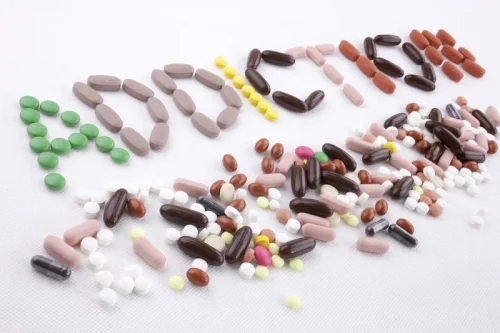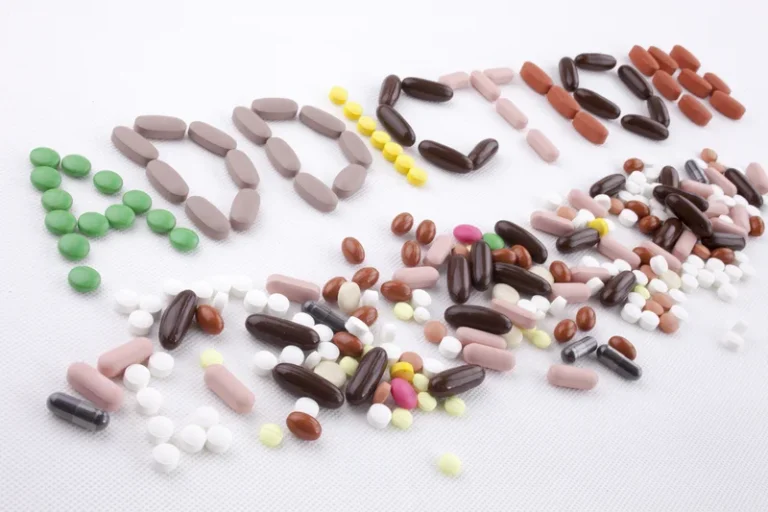
It has been embraced by health care providers seeking to move away from confrontational and pathological approaches toward motivational and person-centered approaches, such as motivational interviewing. Drug dependence should not be mistaken for addiction or drug abuse, as these are different stages in the drug addiction journey. It is the result of drug abuse and one of the symptoms of full-blown addiction. Clinicians should assess the patient’s level of motivation and respect their stage of change. Treatments can utilize psychosocial supports such as Alcoholics Anonymous (AA) or Narcotics Anonymous (NA). Depending on the addictive disorder, clinicians can consider the possibility of psychotherapy and pharmacotherapy.
What Are the Stages of Change in Addiction?

Though it may sometimes appear as if someone with a substance abuse disorder develops a problem quickly, this isn’t usually the case. When it comes to addiction to alcohol and/or drugs, there are often stages that a person goes through as their dependency to the substance grows. Another term for addiction is a substance use disorder, which is an accurate description because it is a chronic disease that will present risks for a lifetime. Even after a person quits using a drug and has undergone treatment, there will always be the danger of relapse. This means, one must commit to an entire lifestyle change, in order to maintain their life of recovery. For many people, the action stage starts in a detox or treatment center.

Addiction Recovery Without Quitting Your Job
When it comes to addiction, a subject often shrouded in misunderstanding and stigma, these images can cut through the noise, offering clarity where confusion once reigned. At Brookdale Addiction Recovery, we can provide you with the individualized care you deserve, through our patient-centric approach to treatment. As each patient enters our program, they undergo a thorough evaluation by our medical and clinical team to construct comprehensive treatment plans tailored to fit their needs. During Stage 2, there are little to no cravings for the drug and the individual will still be making a conscious choice of whether to use or not. They may use it impulsively or in a controlled manner, and the frequency of both options mainly depends on a person’s nature and reason for using the drug. There is no dependency at this point, and the individual can still quit the drug easily if they decide to.
Substance Abuse and Dependence
- As a result, the body becomes less responsive to the drug’s effects, leading to the need for higher doses to achieve the desired outcome.
- To comprehend the stages of addiction, it is important to first understand what addiction is and the intricate factors that contribute to its development.
- At this stage, the brain begins to experience subtle changes, particularly in the reward system, as substances stimulate dopamine release, creating feelings of pleasure or relaxation.
- Your genetic makeup, including how your brain processes dopamine, can also influence your likelihood of experiencing addiction.
Addiction is a complicated illness that affects important parts of the brain. It is characterized by an uncontrollable urge to use substances or engage in activities despite negative consequences. To understand addiction completely, it’s important to discuss the various stages and what occurs during each stage. Despite these mounting problems, the addicted individual often continues to use. This is one of the hallmarks of addiction – the continued use of a substance despite clear negative consequences. It’s a stage where the progression of substance use disorders becomes painfully clear, and the need for professional intervention becomes crucial.
- Whether or not a substance is being misused often depends on the substance itself and how it acts on the body.
- By creating new achievable goals, you give yourself something to look forward to each day besides getting high.
- Addiction is a complicated illness that affects important parts of the brain.
- After using a drug for some time, a person can find themselves trying to quit.
- To truly grasp the insidious nature of addiction, we need to examine the four key phases of substance dependence.
- This flood of feel-good chemicals is what creates the initial high and drives the desire for more.
- Yes, genetic factors can often but not always influence the stages of addiction.
In reality, substances can actually worsen feelings of anxiety or depression over time and make people less interested in activities they used to enjoy. Users, at this point, can also be so disconnected from their old lives that they don’t recognize how their behaviors are harmful and the effects they have had on their relationships. Another term for addiction is a substance use disorder, which is an accurate description because it is a chronic illness that will present lifelong risks. Even after a person stops consuming a medication and has undergone treatment, there is always a danger of relapse.

Addiction and Mental Health Treatment Programs
By recognizing addiction as a chronic brain disease rather than a moral failing, we can develop effective strategies for prevention, intervention, and treatment. After using a drug for some time, a person can find themselves trying to quit. In those cases, the cycle of addiction body was not able to work properly before the person started taking the drug, and the medication is being used to correct that. In all other cases, like in situations where a person is using a drug to self-medicate for a mental health condition or a mental health disorder, the lines between dependence and addiction quickly blur.
The model relies heavily on the development of physical dependence, and even individuals who are diagnosed with severe substance use disorders may not develop significant physical dependence to drugs or alcohol. Understanding the stages of addiction is a crucial aspect of the recovery journey. It offers valuable insights into the intricate nature of substance use disorders and the cyclical pattern of addiction. This knowledge can be instrumental in early detection, intervention, and effective addiction treatment planning. Over time, the brain will even stop alcoholism releasing the neurotransmitters needed to regulate moods and other bodily functions and instead wait for the substance to regulate these actions instead.
You have the right to request an “accounting of disclosures.” This is a list of the disclosures your healthcare provider has made of your medical information. To request this accounting of disclosures, you must submit your request in writing to the HIPAA Privacy Officer. Your request must state a time period which may not be longer than six years.
- It’s important to note that the addiction cycle is a complex and individualised process, and not everyone progresses through these stages in the same way or at the same pace.
- Drugs of abuse cause a surge of dopamine, far beyond what we experience from natural rewards like food or sex.
- As experimentation gives way to more frequent use, patterns begin to emerge.
- As the body adapts to the drug’s continuous presence, the initial dosage no longer produces the same effect, compelling an increase in dosage to achieve the desired results.
Your healthcare providers may also disclose information to doctors, nurses, technicians, and other personnel for review and learning purposes. Although the symptoms of relapse are similar to the symptoms of active drug addiction, these two stages of addiction are completely different. Dependence, in the context of substance use disorder, occurs when an individual becomes reliant on a substance to function normally, stemming from the neurochemical changes in the brain due to regular drug use. Unlike tolerance, where the issue is diminished effects, dependence involves both a physical and psychological compulsion to continue using the substance to avoid withdrawal symptoms and maintain normal functioning. It is important to note that dependence extends beyond mere physical reliance and often requires increasing dosages due to tolerance, further complicating the condition. At this stage, the individual’s life becomes increasingly focused on obtaining and using the substance.
- Let’s take a closer look at the four stages of addiction and how they each build upon each other to lead to full-blown addiction.
- The use of the drug can also be problematic at this time and have a negative impact on the person’s life.
- The information on this site is for informational and educational purposes only.
- Your body starts using the substance to meet a sense of homeostasis, and if you stop taking it, you’ll likely feel sick.
- It’s a time when education, open communication, and support can make a significant difference in steering someone away from the path of addiction.
Addiction is recognized as a chronic disease that affects the brain’s reward circuitry, making it challenging to break free from addictive behaviors without professional intervention and addiction recovery support. Breaking the addiction cycle often requires comprehensive treatment that addresses the physical, psychological, and social aspects of addiction, helping individuals reclaim their lives and achieve sustained recovery. An individual may go through multiple attempts to stop using a substance before realizing that addiction is a factor.
At its core, addiction is driven by the powerful reward system in the brain. When a person engages in activities that are pleasurable or rewarding, the brain releases neurotransmitters, particularly dopamine, which creates a sense of pleasure and reinforces the behavior. However, in the case of addiction, the brain becomes rewired, leading to an overwhelming desire to seek out and repeat the behavior, even at the expense of one’s well-being and relationships.